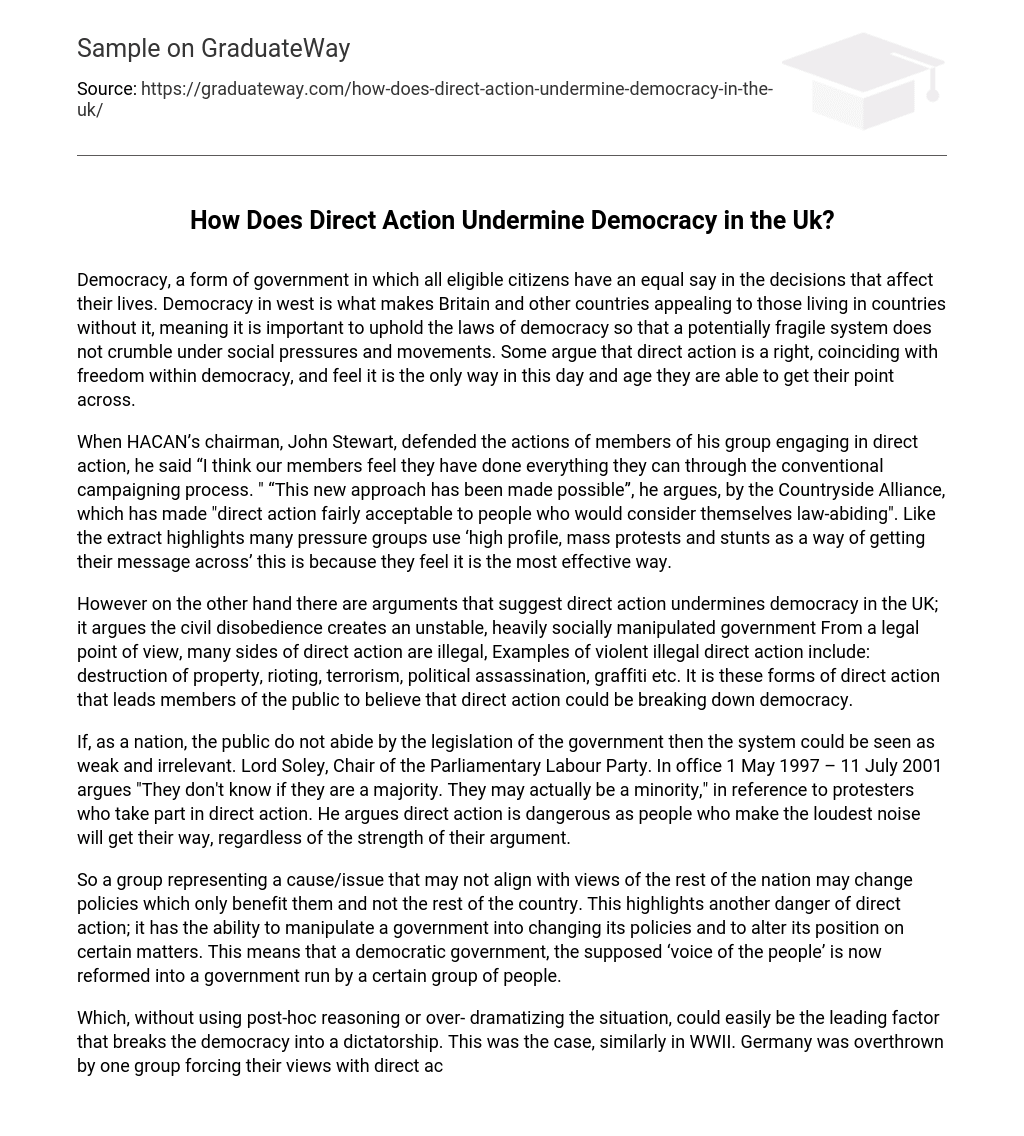In the western countries like Britain, democracy is highly valued as it ensures that all eligible citizens have an equal say in the decisions that impact their lives. This aspect of democracy makes these countries attractive to those residing in nations without such a system. Hence, it is crucial to maintain and uphold the democratic laws, preventing the potential collapse of this fragile system due to social pressures and movements. There are those who argue that direct action is a fundamental right within democracy and believe it is the only effective means in the present era to express their opinions.
When HACAN’s chairman, John Stewart, defended the actions of members of his group engaging in direct action, he claimed that their conventional campaigning efforts had been exhausted and that this new approach has been made possible by the Countryside Alliance. Stewart argues that the Countryside Alliance has made direct action acceptable to law-abiding citizens. This aligns with the observation that many pressure groups use high-profile protests and stunts to effectively convey their message.
There are differing opinions regarding the impact of direct action on democracy in the UK. One viewpoint suggests that it can destabilize the government and manipulate society extensively. Legally, numerous types of direct action are deemed unlawful, such as property destruction, rioting, terrorism, political assassination, and graffiti. These acts can create a perception among the public that direct action is gradually eroding democracy.
If the public does not adhere to the government’s legislation, this could be perceived as a weak and insignificant system, according to Lord Soley, Chair of the Parliamentary Labour Party from 1 May 1997 to 11 July 2001. He suggests that protesters engaged in direct action may not realize that they might actually be in the minority. Additionally, he believes that direct action is risky because those who are the most vocal will prevail, regardless of the validity of their argument.
Direct action has the potential to influence and manipulate a government’s policies, which can be concerning when it only benefits a specific group or goes against the majority’s views. This raises a danger of democratic governments being transformed into ones controlled by particular groups.
Without relying on retrospective reasoning or exaggerating the situation, the leading factor that can easily destabilize democracy and lead to dictatorship is the forced imposition of one group’s views. This scenario was evident in Germany during World War II when Hitler, in 1933, managed to pass an ‘Enabling act’ granting him the power to enact laws without consulting the Reichstag or the president. Consequently, this enabled him to establish a dictatorship.
He succeeded in getting the policy passed by using Nazi and SA support to create a show of force outside the Reichstag, forcing the authorities to comply through violence and intimidation. Opponents of a dictatorship in Britain often make this argument, asserting that direct action would undermine the government’s authority and legitimacy, leading the country towards an unscrupulous regime without laws or respect for legislation.
Some individuals argue that direct action is the most effective way to convey their message and worry that without extreme measures, the government would ignore their appeals. Certain external pressure groups hold grudges against the government because they feel their viewpoints are not adequately represented. Consequently, they resort to illegal actions in order to capture policymakers’ attention. Nonetheless, it is crucial to strike a balance between having a voice and freedom of speech while avoiding any disturbance to the fragile democratic system.





